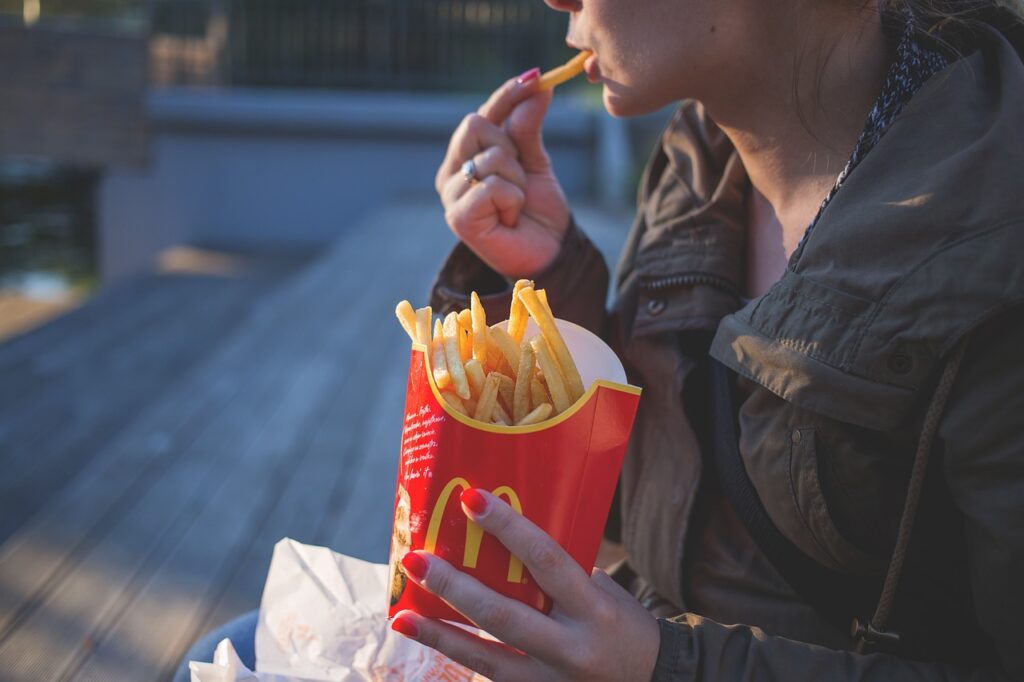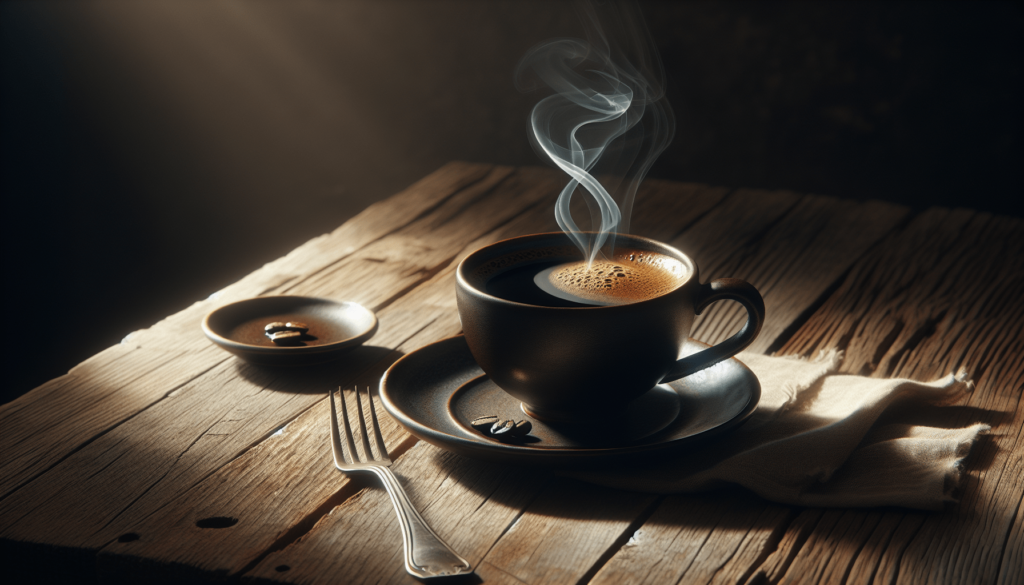What do you think would happen if you only consumed coffee and skipped meals altogether? It’s a thought some people play with—whether it’s for a quick pick-me-up, a weight loss tactic, or just sheer curiosity. But before making any drastic changes to your diet—especially one as extreme as this—let’s talk about what really goes on in your body when coffee becomes your only source of sustenance.

How Coffee Affects Your Body
Understanding Caffeine
Caffeine is the active ingredient in coffee that impacts your body significantly. It’s a stimulant that affects your central nervous system, helping you feel more awake and alert. However, the way caffeine interacts with your body can be complex, especially when you aren’t pairing it with food.
- Increased Alertness: Caffeine can enhance your concentration and mental acuity.
- Energy Boost: You may feel like you have more energy initially, but this can lead to a crash later on.
Drinking Coffee on an Empty Stomach
When you drink coffee without any food, your body processes it differently than when it’s paired with a meal. Here’s what happens:
- Absorption Rate: Without food, caffeine is absorbed quicker into your bloodstream, which can lead to a rapid spike in energy but may also increase anxiety and jitteriness.
- Stomach Acidity: Coffee can increase stomach acid production, which can lead to discomfort, indigestion, or even gastritis when there’s no food to buffer it.
Short-Term Effects of Only Drinking Coffee
Mood Alterations
You might feel a boost in mood immediately after your coffee, but it doesn’t take long for that feeling to change. In the short term:
- Euphoria: The caffeine can initially make you feel happy or euphoric.
- Anxiety and Irritability: As the caffeine high wears off, you might feel jittery, anxious, or irritable.
Energy Levels
While coffee can give you an immediate burst of energy, this is often misleading. The reality is:
- Temporary Boost: You may feel more energetic for a brief period.
- Energy Crash: After a few hours, you might experience a crash due to the sudden drop in caffeine levels.
Digestive Issues
When coffee is the only thing in your system, it can wreak havoc on your digestive health:
- Irritation: Increased acidity can irritate your stomach lining.
- Diarrhea: For some, this can lead to increased bowel movements or diarrhea, as coffee can have a laxative effect.

Long-Term Effects of a Coffee-Only Diet
Nutritional Deficiencies
Coffee lacks the essential nutrients your body needs to function properly. Over time, this can lead to serious deficiencies:
| Nutrient | Function | Consequences of Deficiency |
|---|---|---|
| Vitamins (e.g., B12) | Energy production, red blood cell formation | Fatigue, weakness, neurological issues |
| Minerals (e.g., calcium) | Bone health, muscle function | Weak bones, osteoporosis |
| Proteins | Tissue repair and growth | Muscle wasting, weakened immune system |
| Fats | Energy supply, cell health | Hormonal imbalances, skin issues |
Weight Maintenance or Loss
You might think drinking coffee will help you lose weight since it has no calories, but it’s not that simple:
- Unhealthy Habits: Depending on coffee alone may lead to unhealthy eating patterns.
- Metabolism Issues: Your metabolism may slow down over time due to a lack of adequate nutrition.
Impact on Brain Function
Your brain relies on a variety of nutrients to function optimally. A coffee-only regimen may lead to:
- Cognitive Decline: Over time, the absence of nutrients can lead to a decline in cognitive function.
- Mood Disorders: Nutritional deficiencies can contribute to issues like depression and anxiety.
The Role of Hydration
Coffee as a Diuretic
While coffee can keep you alert, it’s essential to consider how it affects your hydration levels:
- Increased Urination: Coffee has diuretic properties, which means it can lead to increased urine production.
- Dehydration Risk: If you’re not drinking enough water, relying solely on coffee can put you at risk for dehydration.
Balancing Hydration
Maintaining good hydration is crucial. Here are some tips:
- Drink Water: Make sure to drink plenty of water alongside your coffee. A good rule of thumb is to drink at least one glass of water for every cup of coffee.
- Limit Caffeinated Beverages: Try not to exceed more than three 8-ounce cups of coffee daily.

Managing Your Coffee Intake
Discovering Your Limits
It can be easy to get carried away with coffee consumption, especially when it feels good in the moment. Keep an eye on how your body responds:
- Listen to Your Body: Pay attention to signals like increased heart rate, jitteriness, or stomach discomfort.
- Know When to Stop: If you find yourself unable to think clearly or feeling excessively anxious, it may be time to cut back.
Moderation is Key
Instead of relying solely on coffee, consider a balanced approach:
- Incorporate Nutrient-Dense Foods: Choose foods high in vitamins, minerals, protein, and healthy fats. This may include fruits, vegetables, whole grains, lean proteins, and healthy fats.
- Mindful Drinking: Limit how much coffee you consume and focus on enjoying it as part of a balanced diet.
Right and Wrong Reasons to Drink Coffee
When Coffee Fits into a Healthy Lifestyle
Drinking coffee can be a part of a healthy lifestyle when done correctly. Here’s how:
- As Part of Breakfast: Having a cup of coffee with a balanced breakfast can enhance your energy without adverse effects on your stomach.
- During Breaks: Enjoying coffee during breaks can improve your productivity and focus when paired with snacks or meals.
The Downside of Excess Coffee Consumption
Some motivations for drinking excessive coffee may not lead to positive outcomes:
- Stress Response: If you’re using coffee primarily to cope with stress, it might be masking underlying issues instead of addressing them.
- Poor Dietary Choices: Relying on coffee because of a busy lifestyle can lead to neglecting proper nutrition.

Conclusion: Finding Balance
Actually, it’s clear that just drinking coffee and avoiding food is not a viable long-term strategy for your health. Your body needs a wide array of nutrients to function well. It’s important to enjoy your coffee while maintaining a balanced diet. So go ahead and have that cup of joe, but remember to nourish your body with wholesome food too!
Finding the right balance takes time, but your body will thank you for it. If you’re considering altering your diet significantly, it might be best to consult with a healthcare professional. Consider how coffee fits into your unique lifestyle and health goals, ensuring you prioritize your well-being above all else.
